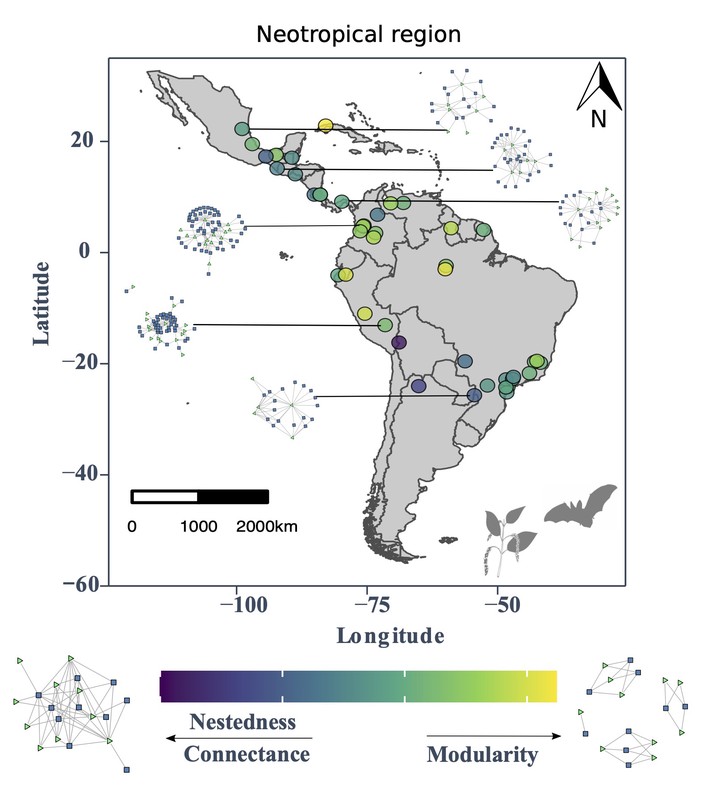Macroecology of Interactions
 figure by Erick J. Corro
figure by Erick J. CorroSeveral biotic and abiotic factors change across time and space, which may directly affect not only the distribution and abundance of species but also other dimensions of biodiversity such as ecological functions and biotic interactions. Over such spatial and temporal gradients, interactions among species form complex ecological networks with emergent properties that cannot be observed at the species or community level. The properties of species interaction networks can be associated with geographical as well as climatic gradients and be shaped by different ecological and evolutionary processes such as dispersal capacity and evolutionary history of the interacting species. In this Project, we combined macroecological and ecological network approaches to study biotic interactions at broad spatial scales (Corro et al. 2020, 2021). More specifically, we are interested in species-level (Dáttilo et al. 2020; Moulatlet et al. 2023) as well as assemblage/network level properties and their spatial/environmental correlates (Luna et al. 2022).
Team
Fabricio Villalobos (PI), Wesley Dáttilo, Gabriel Massaine Moulatlet, Daniel González-Tokman, Andrés Lira-Noriega, W. Daniel Kissling, Ignacion Morales-Castilla
Years
2019-2022
Funding
Consejo Nacional de Ciencia y Tecnología: Ciencia Básica SEP-CONACYT